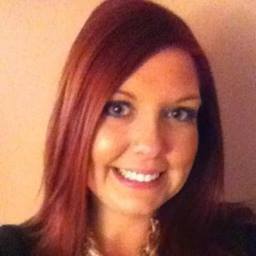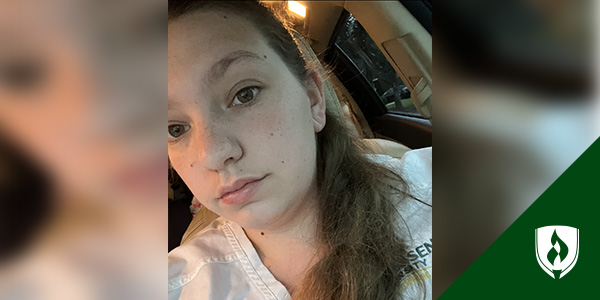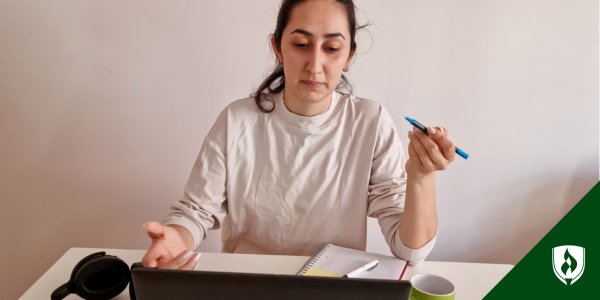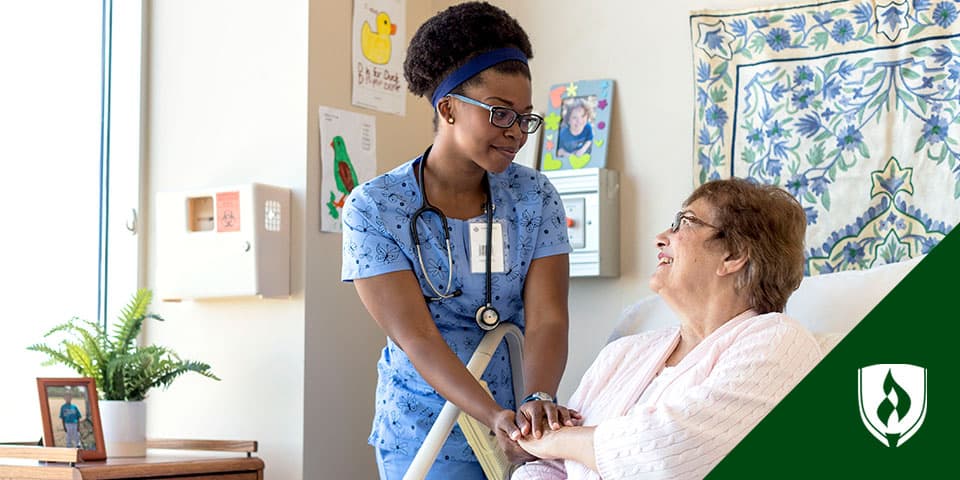How One Student's Nursing Program Prepared Her for a Career at Mayo Clinic
By Jennifer Pfeffer on 12/11/2012
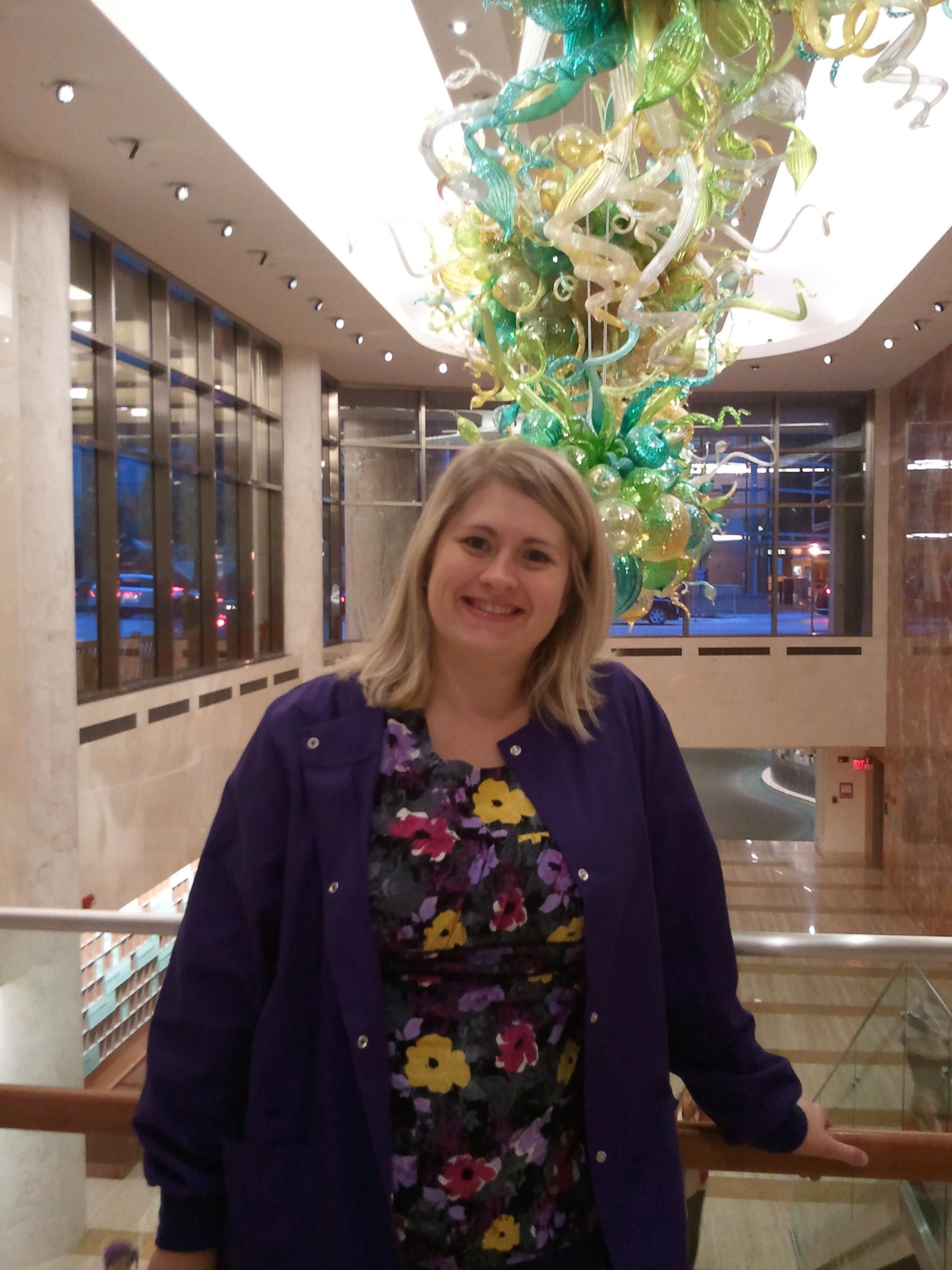
Imagine going to college and earning your bachelor’s degree after high school, only to realize years down the road the path chosen wasn’t necessarily where you saw yourself in the future? Jodi Nicholson, a Rasmussen College School of Nursing graduate, previously earned her bachelor’s degree from a university in public health, but decided after graduation it wasn’t quite the direction in healthcare she saw herself going.
To reach her ultimate goal of becoming a midwife, Nicholson says she realized the public health sector wasn’t the track for her. So, she chose to pursue practical nursing – a field offering lots of career potential and job security – and enrolled at Rasmussen College in July 2009 in the practical nursing program.She felt there was no better time to go back to school. She was in her mid-20s, a stay-at-home mom, had the ability to study and the support she needed from her family.
Fast forward three years, and Nicholson, 28, is now a 2010 practical nursing graduate from the Rasmussen College Brooklyn Park campus happily working as a licensed practical nurse (LPN) at the Mayo Clinic’s Department of Otorhinolaryngology (Ear, Nose and Throat (ENT)). Her hard work, adaptability, passion and dedication to nursing provided her the opportunity to work at a hospital as prestigious as the Mayo Clinic, which, according to their website, has one of the largest otorhinolaryngology practices in the world.
Nicholson’s job success ensures her decision to return to school was well worth it for her, and she wanted to share what lead to her high achievements.
Smaller Classes Build Important Relationships
Class size is something Nicholson realized had a big impact on her success. After attending college at a university with hundreds in each of her classes, she said she enjoyed having an average of 12 students in her classes at Rasmussen College. It helped with learning, both in academia and hands-on training.
Also, she was able to build a close-knit group of friends through her nursing classes, all of whom she still speaks to today.
“My small class sizes made going to school feel like home,” said Nicholson. “I come from a small town – Lanesboro, Minn. – and the close-knit feeling was comforting.”
The class sizes also offered her the ability to truly get to know her teachers, which she said she didn’t experience at her previous university.
“I was a good student and had knowledgeable instructors,” Nicholson said. “I loved my teachers. I still talk to them, and they still counsel me. They get to know you as a student and as a nurse, which is really valuable.”
Clinicals, Internships Lead to Opportunities
Before beginning clinicals, nursing students are expected to learn several competencies and procedures, including tracheostomy care, catheters, medical administration, bathing and general beside cares and sterilization. The student must be tested on and pass the procedures in class before they can move onto their clinicals.
Nicholson felt prepared for her clinicals when the time arrived because she was able to put the knowledge and time spent practicing what she learned on dummies in class to working with real patients.
“The critical thinking skills I developed in school prepared me for my clinicals,” Nicholson said. “When you first begin your clinicals you need to remember not to freak out. The first day is more about learning how to communicate with your patients; you need to be there to talk with them. I had a great experience in my clinicals.”
For some students, though, the entire clinical experience may be a giant eye-opener.
“It really makes you aware of patient complications and how bad things can get,” Nicholson said. “I also learned how things should and shouldn’t be handled [in a clinic or hospital], and was able to really understand [how to properly administer] medications.”
Besides her clinical experience, Nicholson also worked at a few nursing homes, in an occupational health clinic, a traditional/long-term care clinic, at a birth center and even sought out her own clinical experience in a hospital’s birthing department.
“I have always had a strong love for the process of birthing, as well as the desire to educate parents that are scared,” Nicholson said. “During my [tenure] at the hospital, I learned birthing, neonatal, triage, how to care for babies and various procedures.”
Getting to Mayo Clinic
When Nicholson saw an opportunity about two years ago to join the staff at Charter House, a Mayo Clinic retirement community, she applied and got the job. Nicholson provided long-term, assisted and independent care to individuals, as well as worked on-call in the ENT department.
However, working in the retirement community wasn’t exactly where she wanted to be permanently.
“Finally, an opening became available for a full-time LPN position in the ENT department, and I immediately applied,” Nicholson said.
She was offered the position, and attributes her success to her clinical background.
“I had a good number of different [clinical] opportunities at Rasmussen College,” Nicholson said. “Since first beginning my courses at Rasmussen, I have [grown] a ton. I now know what I’m capable of when I’m in school, and I realized how far I can push myself.”
Landing the job also stems from taking the time to create an eye-catching and informative resume and cover letter, skills she learned in college; she also took the time to practice for interviews.
“I had a fantastic resume, which I completed in one of my courses for school,” said Nicholson. “I also had a compelling cover letter that made the hiring manager want to interview me, to see what was behind the sheet of paper filled with all the words. I also had prepared for interview questions and gained the ability to critically think through answers.”
Nicholson said she feels extremely blessed to work at Mayo Clinic, a hospital notoriously known throughout the world for its “diagnosis and treatment of complex medical problems.” She says she loves going to work each day.
“They [Mayo Clinic] provide a ton of opportunities to their employees and patients,” Nicholson said. “I get to work closely with physicians, nurses and a variety of other support teams every single day. The teamwork collaborative that happens on a daily basis is inspiring.”
Although Nicholson enjoys where she’s at in her professional life, she appreciates that Mayo Clinic encourages employees to continue their studies. She hopes to earn her master’s or doctorate-level degree in nursing one day, and possibly work as a midwife or ENT practitioner.
